It can be unsettling to be painted. The last person who tried to paint me was my daughter. She missed out my mouth. Now Andrea Tyrimos is having a go. I’m optimistic that she will do a better job as a) she is a proper artist, and b) she is planning to exhibit the piece in a gallery later this week, alongside nine other portraits of people who, like me, suffer from mental illnesses.
All of which sounds a bit glum, until I turn up one afternoon at her north London studio to inspect progress. There I am, on a canvas 4ft by 4ft, leering down at myself as if to say: ‘What do you think you’re doing here?’ I’m slightly startled by how good a likeness it is. My nose is askew and my chin is formidable. It’s me, all right.
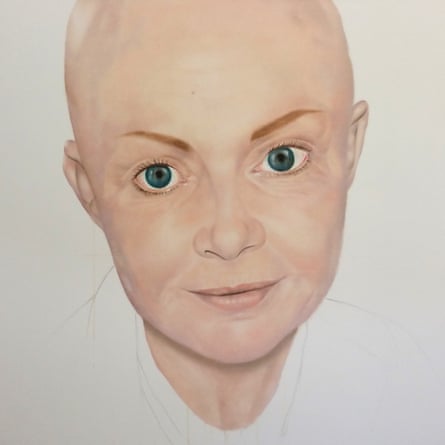
On the floor and other walls are my fellow subjects, all rendered in the same washed-out oil colours, minimalist detail to hair and clothing bringing out their vulnerability through their eyes. I’ve always felt that mental illness is something you wear on your face. Tyrimos has captured that.
“Some people close to me suffered with mental health issues and find it hard to be open about it,” Tyrimos says. “That was the initial inspiration. I wanted to do something to get people talking about it.”
The artist, exhausted and exhilarated by four months of living inside other people’s heads, calls her project Bipolar Picasso. The portraits are accompanied by audio clips in which the subjects speak about their affliction, how they cope, and how they don’t.
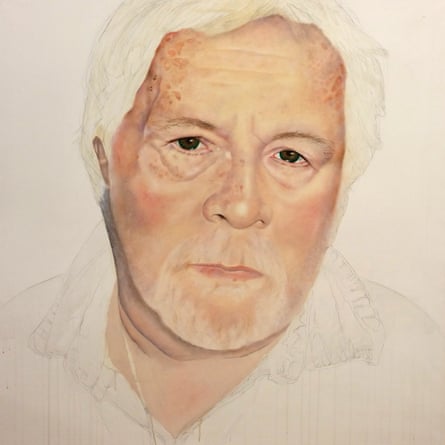
“The media only cover mental illness when it concerns a celebrity, as entertainment,” she says. “I want to use a celebrity-obsessed society to get people to learn about the illnesses, and to see ordinary members of the public in the same light.” And so, among famous faces such as Bill Oddie, Kerry Katona and Alastair Campbell, she has included people who are not well known. After all, when mental illness strikes, it doesn’t matter how famous you are. Celebrity won’t help.
The overlap between art and mental illness is, of course, very broad. I’m not an art historian, but you don’t need to be to know that Caravaggio and Van Gogh were not well. A Thomas Mann protagonist once asserted that “healthy people do not write, act or compose”, and that was in 1903. If anything, that rule has only become more firmly entrenched. It gets harder and harder to find the actor, artist, musician or writer who has not had a brush with the black dog.
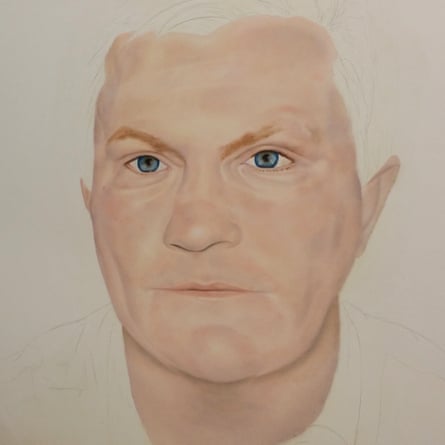
Sports stars are just the latest category of artists whose psychological inflexibility seems to drive them first to success and secondly to disintegration. “When you’re winning, everything seems to go along perfectly,” former boxer Ricky Hatton says during his particularly revealing audio clip. “When I started to lose fights, I found I wasn’t strong enough to deal with it mentally. It was when I had too much time to ponder all the things that had gone wrong for me – that would set me off.”
But mental illness, and depression in particular, is not picky. It really doesn’t care if you are rich, poor, black, white, privileged or deprived, famous or obscure. It’s particularly happy to feed on introspection and self-evaluation, in people who reflect a little too much about themselves, how they compare. Over-thinkers.
Tori Allen-Martin blames her agonies on the way she looks, though her portrait is stunning. In her recording, she refers to her “body issues” and laments how social media makes this so much harder. “Of course I’m going to look shit in the mirror when I compare myself to selfies,” she says.
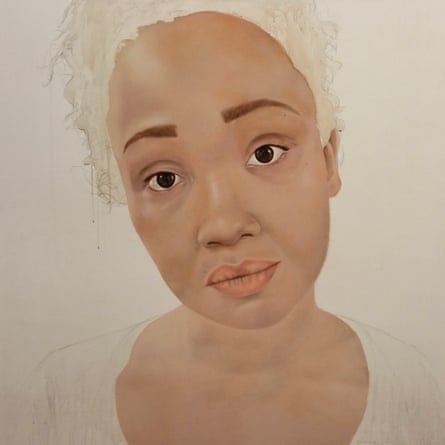
Tyrimos herself doesn’t seem particularly tortured. I venture that, in an unusual reversal of roles, she is probably more balanced than her subjects.
“Art is therapy, escapism,” she says. “It’s very important to have a creative outlet. A lot of people with mental vulnerabilities are the most amazing people. We should treasure them.”
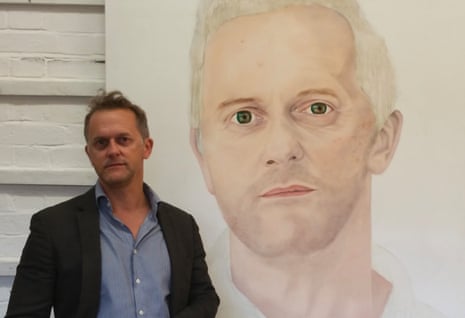
Comments (…)
Sign in or create your Guardian account to join the discussion